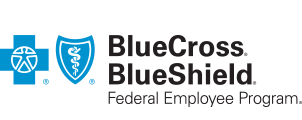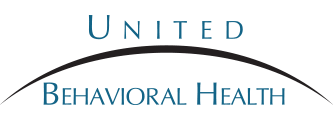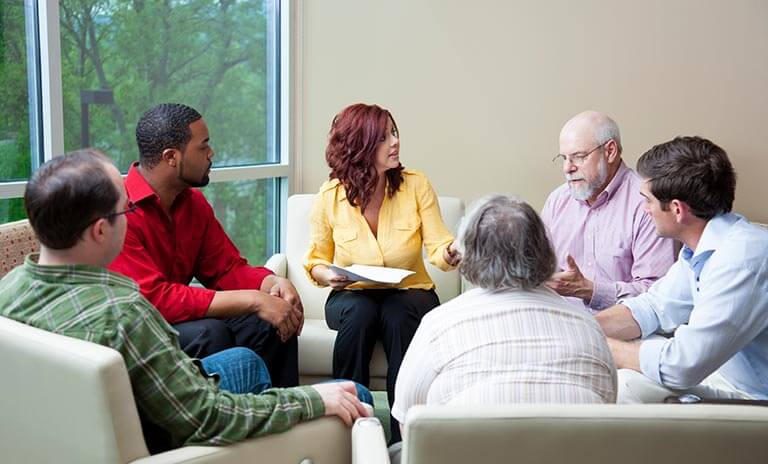Learn how to recognize the signs and symptoms of depression and get help for yourself or a loved one. Seven Hills Hospital helps individuals struggling with depression build a strong foundation for lasting recovery. Located near Las Vegas, Seven Hills is the leading provider of psychiatric and addiction treatment.
Understanding Depression
Learn About Depression
Depressive disorders are a common but serious, mental health disorder that can affect adolescents, adults, and older adults. Experiencing feelings of sadness is something that everyone faces at various times throughout their lives, but there are some people who experience such strong feelings of sadness and helplessness that it impairs their ability to function on a day-to-day basis. For these people, emotions begin to negatively affect their occupational, educational, and social responsibilities, which only adds to the cycle of depression and seeking treatment is necessary. There are a variety of forms of depressive disorders that can present themselves in various stages of life. Some of the most commonly recognized forms of depression include:
Major depressive disorder: This form of depression is characterized by severe symptoms that interfere with an individual’s ability to function in many aspects of his or her life. These individuals often have problems with work or school, trouble sleeping, eating, and enjoying life.
Minor depression: With this form of depression, an individual experiences symptoms of depression for more than two weeks, however, the symptoms are never severe enough to meet the diagnostic criteria for major depressive disorder. These people will experience significant levels of distress, but it may not get to a point where it interferes with their ability to function.
Dysthymia (or persistent depressive disorder): This disorder occurs when a person has suffered from depressive symptoms for two years or longer. These individuals struggle to maintain control of their emotions, but also do not typically suffer from an inability to function appropriately on a daily basis.
Statistics
Depression Statistics
Depression is one of the most commonly diagnosed mental health disorders in the United States and throughout the world. It has been estimated that depression affects 1 in 10 Americans and, according to the Centers for Disease Control and Prevention, major depression is the leading cause of disability for people between the ages of 15 and 44. Late-life depression in particular is said to affect 15 out of every 100 adults over the age of 65 in the United States.
Causes & Risks
Causes and Risk Factors of Depression
It is most likely the case that depression is caused by a combination of genetic, biological, environmental, and psychological factors. Examples of these various factors can include:
Genetic: There is believed to be a strong genetic component involved in the development of depressive disorders. Depression is known to run in families, which suggests that its onset is largely hereditary. However, people without a family history of depression may still develop the disorder.
Physical: Depression is a disorder of the brain and well-known theories have suggested that depression develops when chemicals in the brain, neurotransmitters, are out of balance. When these chemicals are imbalanced, the result can be improper regulation of one’s emotions, resulting in the symptoms of depression. Neuroimaging studies have shown that the brains of individuals with depression look differently than those without depression.
Environmental: It is widely believed that those individuals who experience certain life events, such as trauma, the loss of a loved one, or any other stressful situation may trigger a depressive episode.
Risk Factors:
- Being female
- History of substance abuse
- Unemployment
- Family history of depression
- Family history of other mental illnesses
- Suffering from trauma
- Chronic stress
- Major life changes
- Low socioeconomic status
- Poor social and familial support
Signs & Symptoms
Signs and Symptoms of Depression
Those who are struggling with a depressive disorder will not all experience the same symptoms. Instead, symptoms will depend upon the severity of the disorder as well as a number of other environmental factors. Some of the most common signs and symptoms of depressive disorders may include:
Behavioral symptoms:
- No longer participating in activities that one used to enjoy
- Self-harming behaviors
- Difficulty maintaining daily responsibilities
- Social isolation
- Displaying unprovoked angry outbursts
- Inability to properly perform at work or school
- Suicide attempts
Physical symptoms:
- Headaches
- Cramps or digestive problems
- Weight loss or weight gain
- Changes in sleeping patterns
- Changes in appetite
- Aches or pains
- Lack of energy
Cognitive symptoms:
- Difficulty concentrating
- Slowed thinking
- Memory problems
- Difficulty making decisions
Psychosocial symptoms:
- Persistent feelings of sadness and emptiness
- Feelings of helplessness
- Feelings of hopelessness
- Feelings of worthlessness
- Feeling overly critical of oneself
Lasting Effects
Effects of Depression
While depressive disorders can be successfully treated through various therapeutic interventions and the use of appropriate medication, unfortunately not everyone gets the treatment they need. When depressive disorders are left untreated they can create a variety of negative long-term effects. These may include:
- Social isolation
- Troubled relationships
- Familial turmoil
- Obesity
- Substance abuse and addiction
- Anxiety
- Increased engagement in risky behaviors
- Significant difficulties at work
- Makes it harder to overcome serious illnesses
- Self-harming behaviors
- Suicidal thoughts and behaviors
Co-Occurring Disorders
Co-Occurring Disorders
There are a number of mental health disorders that can exist alongside depressive disorders. Some illnesses can come on before the depression and cause it to develop, or can be the consequence of it. The most common of these co-occurring disorders include:
- Post-traumatic stress disorder
- Attention-deficit/hyperactivity disorder
- Eating disorders
- Generalized anxiety disorder
- Obsessive-compulsive disorder
- Other anxiety disorders
- Borderline personality disorder
- Schizophrenia
- Substance abuse disorders and addiction
Frequently Asked Questions
Frequently Asked Questions About Depression
Are there depression support groups in Las Vegas?
Yes, fortunately, there are many depression support groups in the Las Vegas area that can offer a community of support when you need it most. To find a meeting time and location that’s convenient for you, contact a mental health professional in your area for a referral.
Are there postpartum depression treatment centers?
When a woman is suffering from postpartum depression, she needs a treatment provider who understands her unique recovery needs. Many comprehensive treatment centers offer specialized care for depressive disorders like postpartum depression, providing a personalized path to healing for new mothers who are struggling with symptoms of this condition.
Where are there hospitals for depression?
Sometimes, when a person is suffering from severe depression, he or she may be hospitalized for stabilization purposes. Beyond these acute supports, some hospitals offer inpatient programming, partial hospitalization programming (PHP), and/or intensive outpatient programming (IOP) to treat depression and many other mental health concerns.
Where do I go for depression help?
To get help for depression, contact a treatment center in your area that offers specialized care for depressive disorders at a variety of levels. The severity of your symptoms, your immediate treatment and safety needs, and the existence of any co-occurring mental health conditions will dictate the form of care that is most appropriate for you.
Where are there depression treatment centers in Nevada?
There are many treatment centers that offer specialized support for depression throughout the state of Nevada. But the greatest concentration of support exists in the most populated parts of the state, like the greater Las Vegas area. Here, facilities such as Seven Hills Hospital provide individualized care for many types of mental health conditions, including depression.
What are the best treatment centers for anxiety and depression?
The best treatment centers for anxiety and depression are those that offer the services and support you need to recover. Therefore, what may be the best treatment provider for you may not be the best for someone else. Take some time to research options for care in your area that offer the level and type of care that reflect your unique needs for healing from the effects of anxiety and depression.
Are there depression doctors near me?
Typically, your primary care physician can be a great source of information when it comes to locating depression support in your area. He or she can provide referrals to hospitals, clinics, and centers that are uniquely equipped to help you recover from depression at the level of care that is most appropriate for you.





















